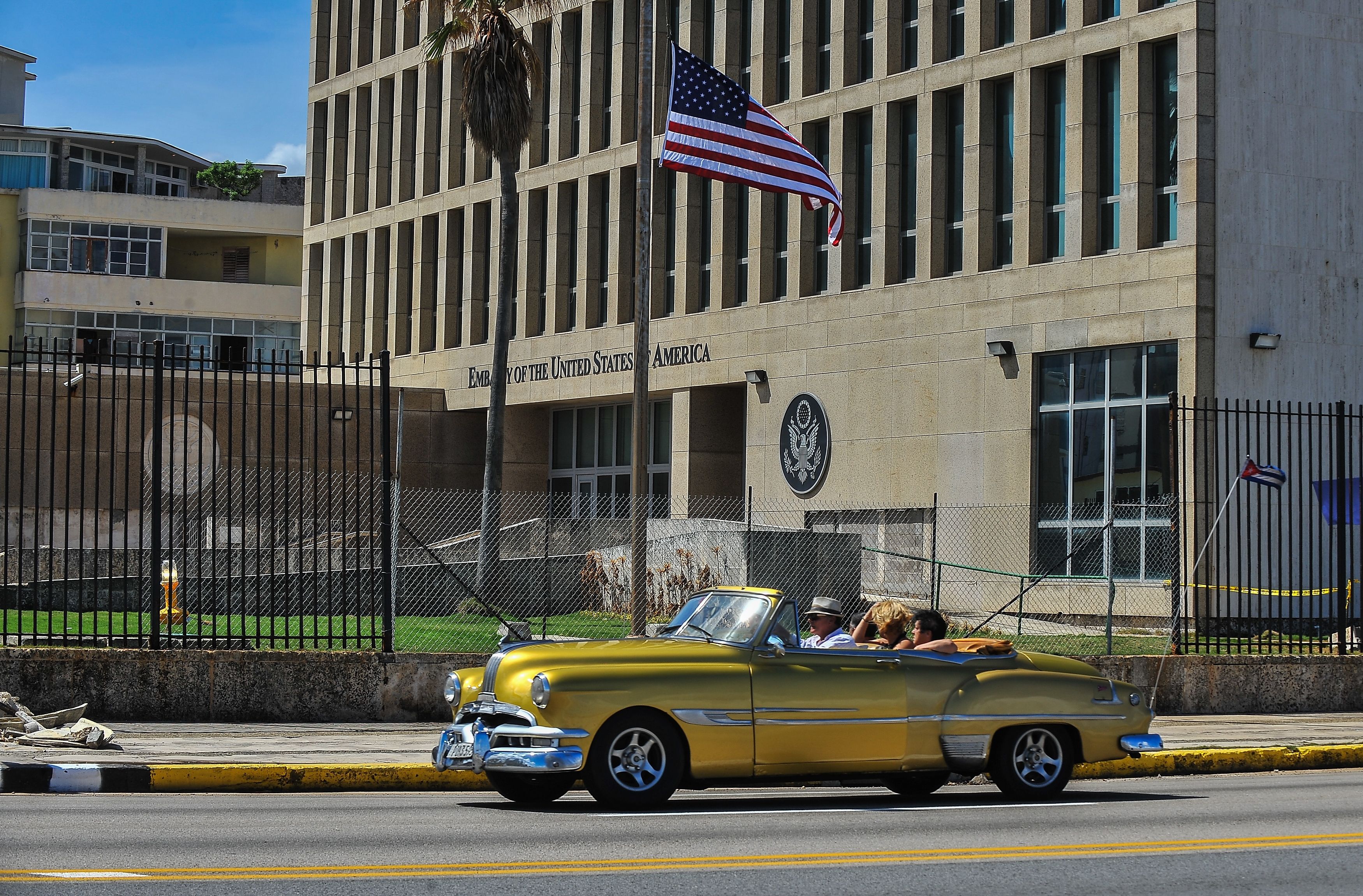'Significant differences' found in the brains of diplomats who experienced 'sonic attacks' in Cuba


A free daily email with the biggest news stories of the day – and the best features from TheWeek.com
You are now subscribed
Your newsletter sign-up was successful
Doctors have found "significant differences" in the brains of the diplomats who experienced mysterious purported "health attacks" in Cuba, NBC News reports.
According to the University of Pennsylvania study, workers examined had "less white matter in their brains and less connectivity in the areas that control vision and hearing than similar healthy people," per NBC.
It's been nearly two years since the State Department said that U.S. workers in Cuba had experienced "health attacks," with diplomats beginning to suffer from health issues, including hearing loss and headaches, after hearing strange noises. President Trump said he believed Cuba was to blame, although Cuba has denied responsibility. Even all this time later, NBC reports that the government "still has not determined who or what is responsible" for the alleged attacks and at this point has "exhausted its leads in the case."
The Week
Escape your echo chamber. Get the facts behind the news, plus analysis from multiple perspectives.

Sign up for The Week's Free Newsletters
From our morning news briefing to a weekly Good News Newsletter, get the best of The Week delivered directly to your inbox.
From our morning news briefing to a weekly Good News Newsletter, get the best of The Week delivered directly to your inbox.
Dr. Randel Swanson told CNN that if any of these patients were examined in a brain injury clinic without context, "you would think that they had a traumatic brain injury from being in a car accident or a blast in the military." Swanson in the study compared the effects to a "concussion without a concussion."
Still, even as this new medical information is released, doctors could not make a determination about whether the "significant differences" were caused by the apparent attacks or can help explain them. But even as the case remains elusive as ever, Dr. Ragini Verma, lead researcher, described the new findings in an interview with Reuters as "pretty jaw-dropping."
A free daily email with the biggest news stories of the day – and the best features from TheWeek.com
Brendan worked as a culture writer at The Week from 2018 to 2023, covering the entertainment industry, including film reviews, television recaps, awards season, the box office, major movie franchises and Hollywood gossip. He has written about film and television for outlets including Bloody Disgusting, Showbiz Cheat Sheet, Heavy and The Celebrity Cafe.
-
 The Olympic timekeepers keeping the Games on track
The Olympic timekeepers keeping the Games on trackUnder the Radar Swiss watchmaking giant Omega has been at the finish line of every Olympic Games for nearly 100 years
-
 Will increasing tensions with Iran boil over into war?
Will increasing tensions with Iran boil over into war?Today’s Big Question President Donald Trump has recently been threatening the country
-
 Corruption: The spy sheikh and the president
Corruption: The spy sheikh and the presidentFeature Trump is at the center of another scandal
-
 Nobody seems surprised Wagner's Prigozhin died under suspicious circumstances
Nobody seems surprised Wagner's Prigozhin died under suspicious circumstancesSpeed Read
-
 Western mountain climbers allegedly left Pakistani porter to die on K2
Western mountain climbers allegedly left Pakistani porter to die on K2Speed Read
-
 'Circular saw blades' divide controversial Rio Grande buoys installed by Texas governor
'Circular saw blades' divide controversial Rio Grande buoys installed by Texas governorSpeed Read
-
 Los Angeles city workers stage 1-day walkout over labor conditions
Los Angeles city workers stage 1-day walkout over labor conditionsSpeed Read
-
 Mega Millions jackpot climbs to an estimated $1.55 billion
Mega Millions jackpot climbs to an estimated $1.55 billionSpeed Read
-
 Bangladesh dealing with worst dengue fever outbreak on record
Bangladesh dealing with worst dengue fever outbreak on recordSpeed Read
-
 Glacial outburst flooding in Juneau destroys homes
Glacial outburst flooding in Juneau destroys homesSpeed Read
-
 Scotland seeking 'monster hunters' to search for fabled Loch Ness creature
Scotland seeking 'monster hunters' to search for fabled Loch Ness creatureSpeed Read
